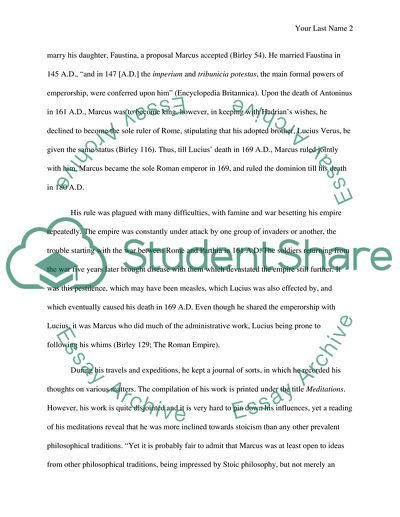Cite this document
(“Marcus Aurelius: A Great Philosopher or a King Research Paper”, n.d.)
Marcus Aurelius: A Great Philosopher or a King Research Paper. Retrieved from https://studentshare.org/history/1745355-marcus-aurelius-a-great-tyrant-or-philosopher
Marcus Aurelius: A Great Philosopher or a King Research Paper. Retrieved from https://studentshare.org/history/1745355-marcus-aurelius-a-great-tyrant-or-philosopher
(Marcus Aurelius: A Great Philosopher or a King Research Paper)
Marcus Aurelius: A Great Philosopher or a King Research Paper. https://studentshare.org/history/1745355-marcus-aurelius-a-great-tyrant-or-philosopher.
Marcus Aurelius: A Great Philosopher or a King Research Paper. https://studentshare.org/history/1745355-marcus-aurelius-a-great-tyrant-or-philosopher.
“Marcus Aurelius: A Great Philosopher or a King Research Paper”, n.d. https://studentshare.org/history/1745355-marcus-aurelius-a-great-tyrant-or-philosopher.


